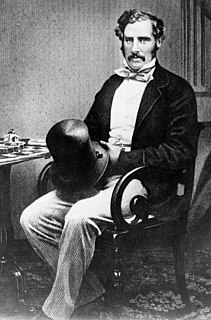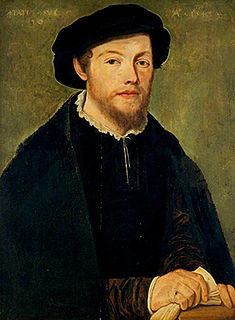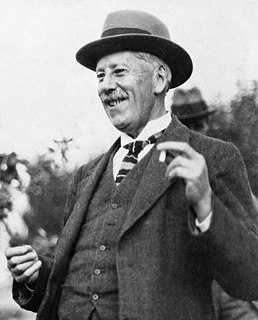
Sir George Grey, KCB was a British soldier, explorer, colonial administrator and writer. He served in a succession of governing positions: Governor of South Australia, twice Governor of New Zealand, Governor of Cape Colony, and the 11th Premier of New Zealand.

George Wishart was a Scottish Protestant Reformer and one of the early Protestant martyrs burned at the stake as a heretic. George Wishart or Wisehart was the son of James and brother of Sir John of Pitarrow, both ranking themselves on the side of the Reformers. He was educated at the University of Aberdeen, then recently founded, and travelled afterwards on the Continent. It is thought that it was while he was abroad that he first turned attention to the study of the Reformed doctrines. He engaged for some time in teaching at Montrose. Wishart afterwards proceeded to Cambridge and resided there for about six years, from 1538 to 1543. He returned to Scotland in the train of the Commissioners who had been appointed to arrange a marriage with Prince Edward and the Queen of Scots. He preached to the people with much acceptance at Montrose, Dundee, and throughout Ayrshire. On passing East to the Lothians, Wishart, who spoke latterly as in near prospect of death, was apprehended by Bothwell in the house of Cockburn, of Ormiston, and carried captive to St. Andrews, where he was tried by a clerical Assembly, found guilty, and condemned as an obstinate heretic. He was executed next day at the stake on Castle Green, his persecutor, Bethune, looking on the scene from the windows of the castle, where he himself was to be assassinated within three months.
The following lists events that happened during 1914 in New Zealand.
Ian Wishart is a New Zealand journalist, author and publisher, and the editor of Investigate magazine. He is a conservative Christian, an opponent to the scientific theory of anthropogenic climate change, and has been described as a "professional controversialist".
Sir John Steele Henry is a New Zealand jurist and former Court of Appeal judge, and member of the well-known Henry family.

Sir Trevor Ernest Henry was a New Zealand jurist and member of the well known Henry family.
The following lists events that happened during 1870 in New Zealand.
The following lists events that happened during 1832 in New Zealand.
David Henry may refer to:
The Henry family migrated to New Zealand from Scotland in the 1870s. In New Zealand they played a major role in forestry, industry, law and philanthropy.

Sir David Henry was a Scottish-born New Zealand industrialist, company director, and philanthropist.

Jack Euan Henry was a New Zealand industrialist and company director, and a member of the well-known Henry Family.
Brian Phillip Henry is a New Zealand barrister and a descendant of the industrialist Henry family.

Wellington has been the capital of New Zealand since 1865. New Zealand's first capital city was Old Russell (Okiato) in 1840–41. Auckland was the second capital from 1841 until 1865, when Parliament was permanently moved to Wellington after an argument that persisted for a decade. As the members of parliament could not agree on the location of a more central capital, Wellington was decided on by three Australian commissioners.

New Zealand Forest Products (NZFP) was New Zealand's largest industrial company from its creation in 1936 until the privatisation of state-owned Telecom New Zealand in 1990. Sir David Henry KBE was responsible for negotiations on behalf of the Henry Family that saw the creation of New Zealand Forest Products.

Sir Thomas Hill Easterfield was a New Zealand chemist and university professor. He was born in Doncaster, Yorkshire, England, on 4 March 1866.
Sir Thomas Edwin Clark was a New Zealand industrialist who played a major role in a number of different enterprises. He was a patron of New Zealand's involvement in international yachting. He was the driving force in the development of Crown Lynn, a ceramics manufacturer begun by his great-grandfather Rice Owen Clark in the mid 1850s.
The 1976 New Year Honours in New Zealand were appointments by Elizabeth II on the advice of the New Zealand government to various orders and honours to reward and highlight good works by New Zealanders. The awards celebrated the passing of 1975 and the beginning of 1976, and were announced on 1 January 1976.
The 1977 New Year Honours in New Zealand were appointments by Elizabeth II on the advice of the New Zealand government to various orders and honours to reward and highlight good works by New Zealanders. The awards celebrated the passing of 1976 and the beginning of 1977, and were announced on 31 December 1976.
The 2001 Queen's Birthday Honours in New Zealand, celebrating the official birthday of Queen Elizabeth II, were appointments made by the Queen in her right as Queen of New Zealand, on the advice of the New Zealand government, to various orders and honours to reward and highlight good works by New Zealanders. They were announced on 4 June 2001.







